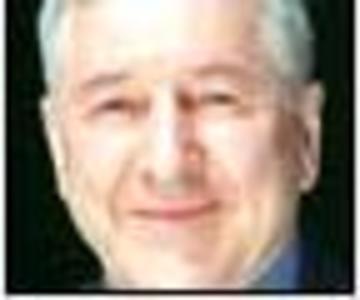There is a Quebec political syndrome. It inspired the decision of Stéphane Dion, Jack Layton and Gilles Duceppe to seize power, dumping the Conservatives.
Is it coincidence that all three are from Quebec? Even Mr. Layton was born and bred there, graduating from McGill University. His father was a Quebec MP in the Mulroney government.
The Quebec political syndrome includes a permanent resentment over past wrongs and past humiliations. It's premised on being under existential threat in North America, where its language is different and outnumbered. It displays a fortress mentality. And the syndrome assumes that, whatever Quebec wants, it must get. Or it's aggrieved. Quebec doesn't accept give and take, just take. Reciprocity's out, unilateralism's in.
So Quebec elected a majority of Bloc Québécois MPs in six elections since 1993. The Bloc's bare-faced principle is to be guided by Quebec's interests and Quebec's interests alone. "I'm here to act for the Quebec nation," Mr. Duceppe said on Monday as the three signed their agreement. And Quebec is hypersensitive to insult. Nationalists burned the Canadian flags routinely. But when expatriate Anglos trampled the Quebec flag in Brockville, all of Quebec was aroused. It was added to Quebec's carefully tended list of historic slights.
So what precipitated the triumvirate's power grab? The casus belli was Finance Minister Jim Flaherty's announcement that he was ending the $1.95 subsidy to parties for each vote they receive. It was a provocation, most unwise. The strong negative reaction from opposition parties, press and public caused Stephen Harper to recant.
But our Quebec trio couldn't forgive or forget. Mr. Harper must be destroyed. The revenge of the nerd for all past indignities would be terrible: Mr. Dion must become prime minister.
Mr. Duceppe understood that the measure was aimed at the separatist movement. The Bloc gets the same money per vote as the other parties, though it campaigns only in Quebec and buys TV advertising only in one language. The Bloc is the rich sister of the Parti Québécois; in Quebec, the parties get only 50 cents a vote. So the Bloc does almost no fundraising, letting the PQ collect from separatist supporters. And the Bloc uses its financial power to spread the PQ's message. The two parties are joined at the hip, and Ottawa finances separatism.
Mr. Duceppe wants Mr. Harper gone. In 2005, support for secession soared so high that the confident PQ adopted its most radical program: unilateral secession, no association. But Mr. Harper cajoled Quebeckers, even recognizing the Québécois as "a nation within a united Canada." Separatism vanished as an issue in Quebec's election of 2007 and the one on Monday - until this week.
Now Pauline Marois, who won the PQ leadership on a promise to drop the commitment to a referendum, points to the turmoil in Ottawa and the outrage in Western Canada: "We are [now] more sovereigntist because we see that that country doesn't function. That federation denies the reality of Quebec. ... The reactions in the rest of Canada are demonstrating that, deep down, they have not much respect for Quebec and don't want really to recognize us as a nation."
True, there is outrage west of Ottawa. People voted for a leader and a party, not a three-headed bait-and-switch substitute. The Conservatives won more seats than the combined opposition in British Columbia, Alberta, Saskatchewan, Manitoba and New Brunswick. In Ontario, the Conservatives won 13 more seats than the Liberals, 34 more than the NDP. Now the people see their victory snatched from them under obscure rules that supposedly justify an illegitimate outcome.
The country is polarized between Quebec and the rest of Canada. Mr. Dion claims "the Bloc accepted to have 18 months of political stability in Canada." The 18 months have only just started. Mr. Duceppe, the kingmaker, must be happy.
Why the kingmaker can't stop laughing
Coalition BQ-NPD-PLC

William Johnson53 articles
William Johnson, a Quebec journalist, is a former president of Alliance Quebec






















Laissez un commentaire Votre adresse courriel ne sera pas publiée.
Veuillez vous connecter afin de laisser un commentaire.
Aucun commentaire trouvé